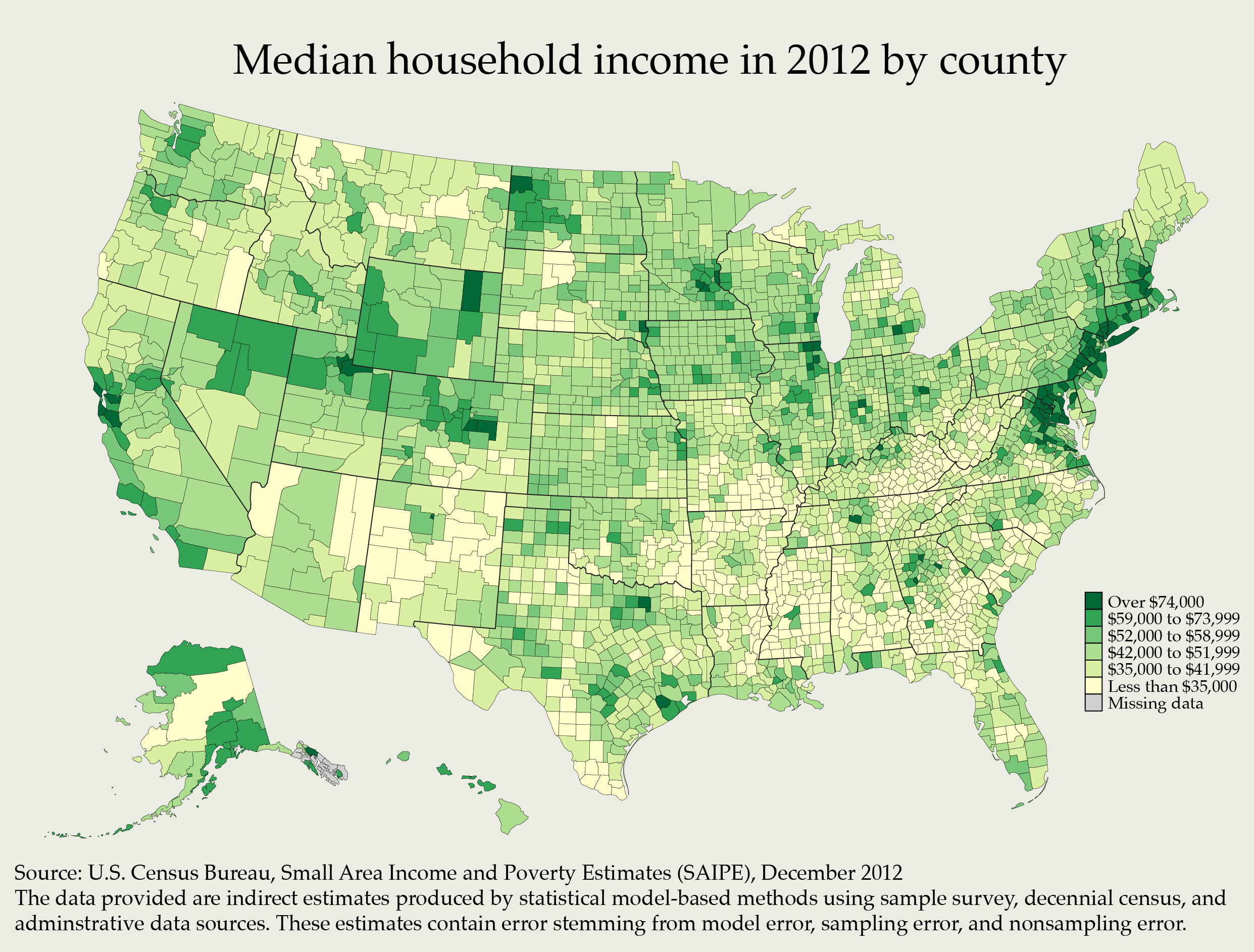Poverty is also highly correlated with race, with African Americans and Native Americans extremely disadvantaged when it comes to opportunities their families can provide which white people (like myself) frequently take for granted. wiki African Americans and Native Americans are left behind significantly at $38,806 for Native Americans and $35,341 for African Americans while White Americans are make an average of $54,857. Alaska Natives are particularly disadvantaged at an average household income of $17,843. This gap is so wide the number of people who are able to jump the gap and get into college is significantly lower for minorities versus their white and Asian American peers.
This only exacerbates the inequality we see in the United States today, keeping the racial inequality gap particularly wide.
This is clearly a problem, and we need to have a system which works for all people. The perpetual poverty in communities destroys lives and those of us who have had the opportunity to get educated have an ethical imperative to expand the opportunities we have had to our fellow Americans as much as we can.
Solutions to poverty obviously start with ensuring that education is available for all people, which could easily be done by expanding Pell Grants to people from low-income households. There will be a disproportionate number of minorities who receive the program because of centuries of discrimination. Past college however there is another idea which has caught my attention over the last year or two which would quickly remedy the issue of low income, and that is Universal Basic Income.
The idea is simple, every household receives a certain amount of money every year which they can use however they want or need. With 125 million households, the cost of $20,000 per household would cost us $2.5 trillion total. Even with my tax code as I refer back to often, this will still leave the government with a surplus of money, particularly when taking into account the programs that will no longer be necessary, like Social Security, Food stamps, etc. and the reduced burden on state governments for providing many different programs to support people. This also includes the negative income tax which will reward work for middle class families as opposed to taxing it, and still give the government hundreds of billions of dollars as a surplus to help cut the debt in good times or just give people an extra refund once we stop paying interest on bonds. I have already roughly calculated the effects here based on data from the Census bureau. It is an extension/modification of the tax code I shared a while ago.
Coming back to the original point, which is regional and racial inequality, this is a very easy way to quickly address the issue of poverty in these communities. With money to spend it will be worth it to create businesses where there will be an influx of money to spend, and this will create jobs and get local economies growing. No American will live in poverty, since $20,000 is close to the federal poverty line anyways, and we will be a better nation overall. Inequality will be reduced, which is correlated to numerous social ills, such as gun violence, health in general, school segregation leads to slower economic growth overall, and overall economic instability. Parliament of Australia Improving America's health will significantly lower government health expenditure which is a ticking time bomb.
If someone knows they are going to get their UBI no matter if they work and then they work as well, they are probably still going to go out since they can use that money for whatever they want, plus under my full plan low and middle income households will actually get a negative income tax which will create an even bigger incentive for people to work. Since I am not taxing people at low income levels the total earned income will increase no matter how much you work. This study of UBI basically explains as well as possible why UBI is not going to have a significant impact on employment.
There is no reason for us not to do this, given the low costs and very large potential benefits. Before you declare it as socialism, remember that one of the greatest advocates of cash as social welfare was Milton Friedman. America needs to have a serious discussion about Universal Basic Income today, and we need to start doing it soon. This is something everyone could get behind.

No comments:
Post a Comment